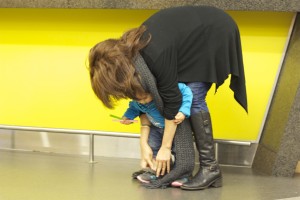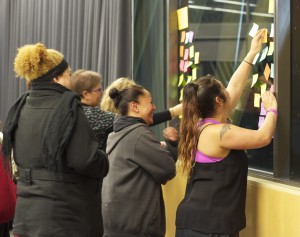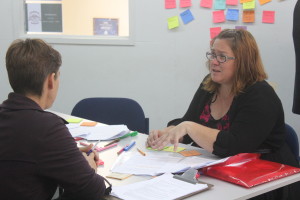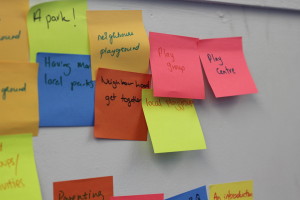Parenting Innovation Process
 It is part of
Strategies with Kids - Information for Parents
(SKIP), which is a nationwide network of organisations that provide support, information and parenting strategies for parents and carers of children from birth to 5 years.
It is part of
Strategies with Kids - Information for Parents
(SKIP), which is a nationwide network of organisations that provide support, information and parenting strategies for parents and carers of children from birth to 5 years.
Action and Impact
 We completed the first four stages of our
innovative action model
by working with community organisations and local parents to develop parenting initiatives that focus on community-based behaviour change on positive parenting. We set up a co-design group of local parents and community leaders that steered the project through these first four stages.
We completed the first four stages of our
innovative action model
by working with community organisations and local parents to develop parenting initiatives that focus on community-based behaviour change on positive parenting. We set up a co-design group of local parents and community leaders that steered the project through these first four stages.

We trained and supported local parents to gather insights through empathy interviewing; led a series of innovation injection sessions; looked at key research on parenting; and held a community whanau event. All this was about getting a comprehensive understanding of parenting in Waitakere; identifying behaviour change goals; and generating ideas on how to achieve change.
We are now working with parents, community organisations and the Ministry of Social Development on the next steps to enable the plan that has been developed to come to life. This includes working with a group of parent leaders on building and running weekly activities in different areas of Waitakere with the goal of growing local connections among parents.
 The SKIP Waitakere Social Innovation Process has engaged many parents and community members. Hopes and dreams have been expressed; and promising ways forward have been identified. Many of the people who have become involved were new to SKIP and to community leadership.
The SKIP Waitakere Social Innovation Process has engaged many parents and community members. Hopes and dreams have been expressed; and promising ways forward have been identified. Many of the people who have become involved were new to SKIP and to community leadership.

Follow us!